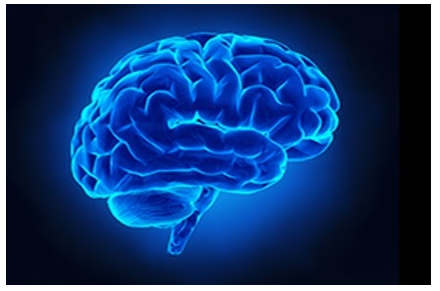Silent But Deadly: The Science of Brain Farts

November 15, 2021
Brain farts. You know the ones. You go into another room to get… what was it again? You just had it! You backtrack to see if you can remember, and no dice. You just experienced a brain fart, and after some time trying to remember, you give up and decide to move on with your life. These brain farts, or lapses in cognition, have confused humans for years. So, what are they exactly, and what triggers them?
To put it simply, a brain fart is when you forget something you were just thinking about for no reason. At least, that’s what it seems like. But the truth is, there are many reasons why you experience these mental lapses. A lot of the things that cause brain farts are man-made, like doors, beeps, photos, and wheels, to name a few. When our brains encounter one of these everyday occurrences, they’re unsure of what to make of it because we didn’t evolve with it. Of course, we don’t notice this confusion, because we take these things for granted. The evolutionary part of our brain, though, stops for a second to think about whatever disturbed it, and in that second we lose our train of thought. And voilà, a brain fart has occurred! Yet why do these common incidents cause our brains to act in such an odd way?
The reason our brains react in such a way is different for each of the disturbances. For doors, it’s because our brains create something called an ‘event boundary’, according to the University of Notre Dame. This is when your brain files away from your thoughts from the first room and prepares a blank slate for the next, like erasing a whiteboard in preparation for the next problem. The reason our brain does this is to organize our thoughts and this is usually helpful, but in some cases, it does more harm than good.
When you hear a beep, your brain stops to think for a second. It’s confusing by this strange noise because it’s nothing like the noises humans evolved hearing. We evolved hearing things like birds, wind, and water, not trucks backing up and fire alarms. What’s so different about these two types of sounds, you ask? It’s simple: Natural sounds fade away. It might be quick, it might be slow, but no matter how swiftly it happens, they all do it. Beeps, on the other hand, are just startling bursts of sound. They cut through the air and then they’re gone. Back, then gone. Over and over and over until they cut out for good. The evolutionary part of our brains is still baffled by these noises, even though we’ve lived with them our whole lives. So when you’re about to do something and hear a truck backing up outside, you’ll know what to blame when you turn back to your work to find you have no idea what it was that you were doing.
Photos are a staple of life. We post them on social media, we show them to our friends. They are the way we bring the past to the present. So how come when we look at photos, our minds draw a blank? This is because, like beeps, we didn’t evolve with photos, so our brains still haven’t been trained to recognize them. In fact, they have a hard time differentiating between photos and reality. According to many studies, people are less accurate when they’re throwing darts at photos of people or things they like than when throwing them at photos of people or things they don’t like. Along with that, many people find it very difficult to rip up photos of cherished childhood possessions. All of this is because of our brain’s confusion when it’s trying to distinguish photos from reality.
Oddly enough, wheels confuse our brains in the same way. Because wheels can sometimes appear to spin backward, our brains have to stop and think for a second. The reason this happens is because of the way we see things. Our brains take little snapshots, like frames in a movie, and sometimes these frames might not be able to pick up how fast the wheels are spinning, so it winds up taking snapshots at different times in the rotation, making it seem like the wheels are spinning backward. Logically, we don’t know how this could be possible if whatever the wheels are attached to is moving forwards, so our brains stop thinking for a second, causing us to lose our train of thought.
So, you may ask, is there a way to stop having these troublesome mental lapses? Fortunately, there are some strategies we can use to at least reduce the frequency of them. And no, the solution is not to remove all beeps and doors from our lives. The answer lies with Dr. Michelle Braun, a neuropsychologist and expert in brain health. She suggests using ‘the three Ps’, which stand for “pause, piggybacks, and practice.” Pause before you begin what you set out to do so you can remember the details better. Piggyback your memory, as associating it with an action or place can also help you remember the task clearer. Finally, practicing repeating the thought in your head as you go to do it is a surefire way to prevent brain farts. Combining these with other tips to help you improve your memory overall can lower your chances of getting brain farts even further.
As you can see, brain farts are just your brain getting confused and losing your train of thought, oftentimes for evolutionary reasons. They can be caused by lots of different things, from doors to wheels, and they can be prevented using the three Ps: pause, piggyback, and practice. So next time you have a brain fart, you’ll know what to blame.
Works Cited
Dovey, Dana. “What Causes Brain Farts And When Should You Worry?” Medical Daily, 12 July 2017, www.medicaldaily.com/what-causes-brain-farts-and-how-prevent-them-neuropsychologist-explains-minor-420054.
“Top 5 Things That Cause Brain Farts.” NBCNews.com, NBCUniversal News Group, 30 Apr. 2012, www.nbcnews.com/id/wbna47233197




